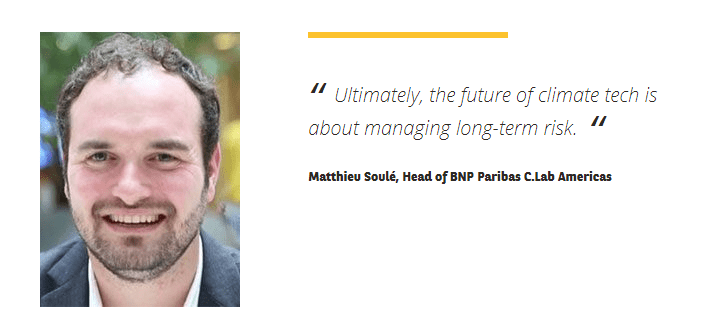Climate tech can help companies hedge their risk to climate change while driving the transition to net zero.
This month, COP26 in Glasgow has shone a light on the scale of the challenge for investors, corporates and policymakers if we are to secure a net-zero, sustainable future.
However, the climate crisis has also created a number of opportunities for innovation, with the technology and startup world set to play a significant role in accelerating the mass transition by helping companies tackle global issues such as decarbonisation and stemming biodiversity loss, says Matthieu Soulé, Head of BNP Paribas C.Lab Americas.
In an essay for the International Financial Law Review, Soulé notes that a second wave of green tech, known as climate tech, shows that startups are expanding beyond the energy sector to create transformative climate-focused solutions for sectors including mobility, agriculture and real estate.

Climate tech has the opportunity to help companies hedge their risk to climate change, driving greater environmental and social impact while also generating enormous financial returns. Recent IPOs and SPACs in the startup industry – such as electric vehicle maker Rivian’s IPO, which surged past $100 billion to be the world’s biggest IPO of 2021 – have investors waking up to the business opportunity that climate tech has to offer. This has spurred an influx of investment from venture capital to private equity and banks, as well as large corporates that are identifying an opportunity to accelerate the development of decarbonisation technologies.
Climate tech startups will also be valuable to help organisations manage and mitigate long-term climate risk during a period when stakeholders are demanding greater risk disclosure and transparency around net-zero commitments. Without the two supporting each other, the path to successful solutions to the climate challenge will be slower and more complex.

